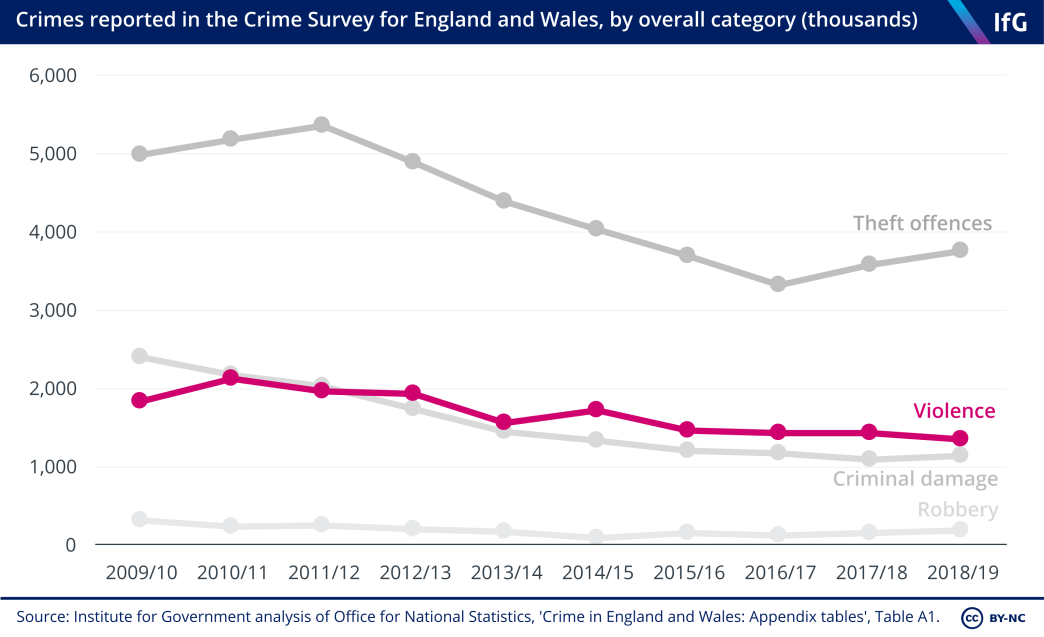Knife crime is not the main challenge faced by police forces
The bigger challenge facing police forces is the increase in serious, organised and complex crimes
While the rise in knife crime is alarming, Benoit Guerin says the bigger challenge facing police forces is the increase in serious, organised and complex crimes.
The latest quarterly ONS crime statistics, which show that knife crime is on the rise, have made headlines. However, crime has changed in recent years and, as ever, the headlines don’t tell the full story.
Knife crime is on the rise, but violent crime is declining
The latest ONS data shows a 7% increase in the number of crimes involving knives or other sharp objects that were committed in the year to September 2019, although the number of homicides caused by such crimes has fallen by 20%. Overall, the number of offences recorded by the police which involved knives or sharp objects is at its highest ever, having increased by 46% since 2011 (the first year for which data is available).
However, the increase in knife crime, and frequent coverage of Britain’s knife crime epidemic, masks even bigger challenges facing police forces.
The Crime Survey for England and Wales (CSEW), which asks a representative sample of people what crimes have been committed against them in the last year, is a robust measure of levels of violent crime ranging from harassment to wounding. It shows that violent crime has declined since 1995 and has remained relatively stable in the last five years.

Complex, serious and organised crime is rising
As violent crimes have declined, data suggests that there has been a rise in the level of complex, serious and organised crimes. These include drug smuggling, human trafficking and sexual crimes against children.
For example, the number of referrals for child sex abuse images in the UK increased ten-fold (997%) between 2012 and 2018 to 113,948. This may reflect a wider shift in criminal activity towards the internet and away from more traditional ‘street’ crime.
The police service is one of the many actors involved in tackling and disrupting these crimes, working alongside the National Crime Agency and regional organised crime units (ROCUs) set up to support forces in tackling serious and organised crime that cuts across police boundaries. But such crimes cut across police borders – often deliberately. This approach makes it harder to organise a co-ordinated police response. In some case, such as county lines drugs trafficking, these crimes are even suspected to be a potential contributing factor to growing knife violence.
Long-term reform is needed to tackle the changes in crimes being committed
The changing trends have fuelled longstanding debates on the viability of the current structure of 43 territorial police forces operating in England and Wales. Fifteen years ago the police inspectorate argued that this set up was "no longer fit for purpose", with the head of the National Police Chiefs Council (NPCC) recently recommending that a restructuring is required to help tackle organised crime.
These are signs that government recognises the scale of the issue.The prime minister has vowed to combat county lines drugs trafficking, and has announced that he would personally lead a new cabinet committee to tackle issues such as serious violent crime.
But inceasingly complex crimes call into question the very structure of policing. So while it may be less headline-grabbing than ongoing reports on Britain’s knife crime epidemic, the way that crime is changing, and how it should be tackled, will require serious long-term reform.
- Supporting document
- performance-tracker-2019.pdf (PDF, 4.23 MB)
- Topic
- Public services
- Keywords
- Criminal justice
- Publisher
- Institute for Government